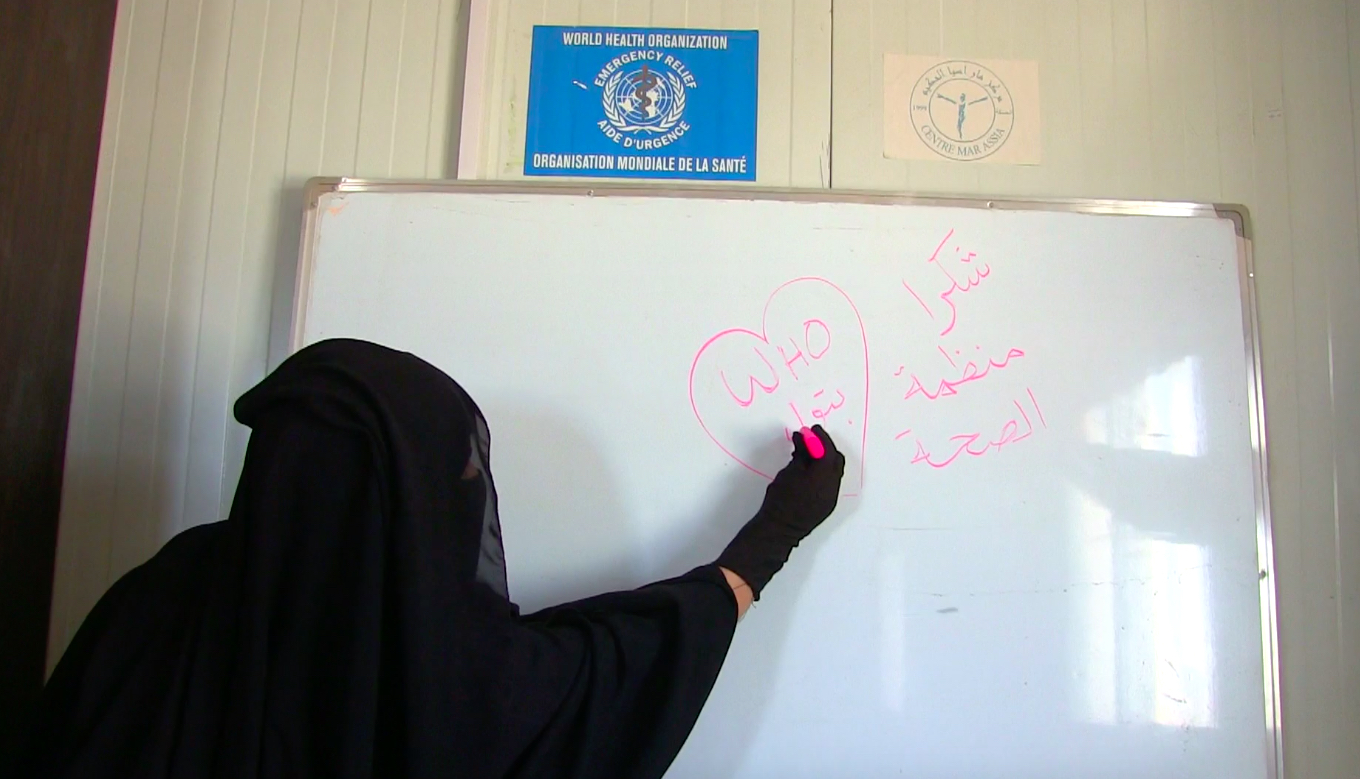
10 October 2021, Damascus – Prior to being displaced to Al Hol camp in north-east Syria, Batoul, 28, used to live in Al Bab city in rural Aleppo. She knows very well how the sudden loss of home and loved ones can affect mental health and well-being.
“I was around 27 when I developed a severe psychological condition. I could hear a lot of powerful voices inside my head, and I would have many suspicious thoughts. I suffered as I started mistrusting everyone and lived in constant fear. I went downhill very fast. It became extremely difficult to get control of my life, and I remember acting strangely, scaring people around me. I began hearing voices giving me commands and live with that even until today. To control the symptoms, I became addicted to self-harm,” said Batoul, describing her suffering.
Batoul is one of the thousands of internally displaced persons at Al Hol camp feeling anxious and uncertain about the future and constantly anxious. This state of mind has become “normal” for camp residents like Batoul.
With WHO support and in close coordination with health partners and camp management, Batoul was referred to a psychiatrist who diagnosed her with schizophrenia and offered an individually tailored treatment plan that did not compromise her confidentiality or dignity. For over 9 months she was counselled by a WHO-supported community worker who looked after Batoul and helped her work towards recovery by ensuring she took timely medication, attended individual counselling sessions, participated in social skills development training, and was regularly followed up.
“Every day I struggled to get through the day. The treatment along with care from the medical team was very helpful, and my recovery and my life have changed for the better. Without this care and support, I would not have been here today living a normal life. I received help to survive when I was grappling with my mental health issues, and I am very thankful to my doctor and the whole team,” added Batoul.
This year only, WHO supported around 50 000 consultations across Syria through community-based projects and over 65 000 consultations through primary health centres, helping people in urban, rural and hard-to-reach areas with mental and physiological challenges. Since the onset of COVID-19, WHO and partners have reached over 333 000 children, elderly people, and caregivers through mental health campaigns in the governorates of Aleppo, Homs, Hama, Lattakia, Tartous, Deir-Ez-Zor and Rural Damascus, providing skills on how to cope with stress and fears, and combat stigma associated with COVID-19.
This year to date, WHO has delivered over 323 000 treatment courses as part of therapeutic interventions of mental health conditions, through health partners across the country, including in northeast Syria. The current coverage for the management of mental health conditions and psychosocial support services at functioning primary health care centres across Syria is 40% – one of the highest in the Eastern Mediterranean Region.
“The health and mental well-being of people in Syria, already troubled by years of war, has been worsened by the impact of COVID-19 and the country’s current economic situation. Addressing mental health and providing psychosocial support is an integral part of the World Health Organization’s work to protect those people in need. We work with our partners to ensure that the humanitarian health response is holistic, and mental health and psychological support is integrated,” said Dr Akjemal Magtymova, Head of Mission and WHO Representative in Syria.


